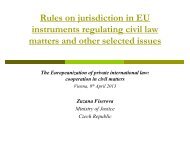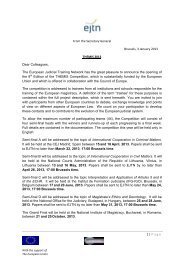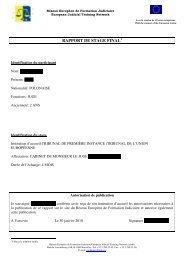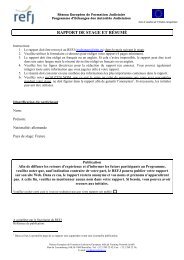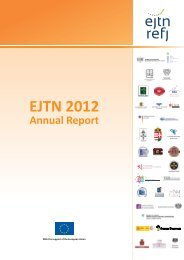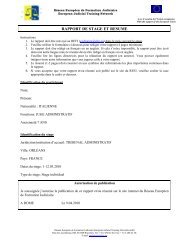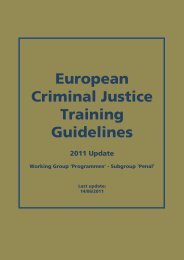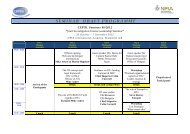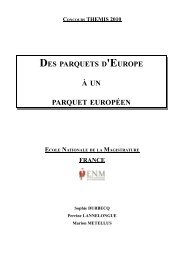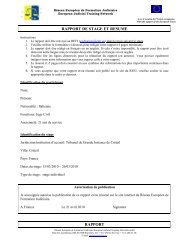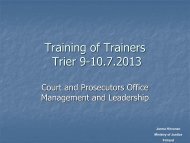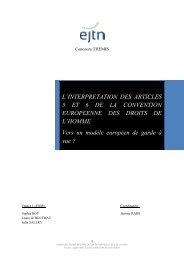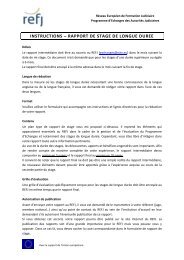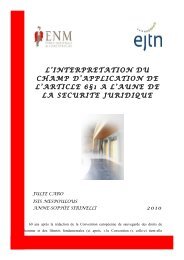Written paper Belgium_1.pdf - European Judicial Training Network
Written paper Belgium_1.pdf - European Judicial Training Network
Written paper Belgium_1.pdf - European Judicial Training Network
You also want an ePaper? Increase the reach of your titles
YUMPU automatically turns print PDFs into web optimized ePapers that Google loves.
Nevertheless it is necessary, despite the circumstances, that every intervention can be<br />
traced in terms of ‘nature and target 21 .<br />
3. A secondment should be limited to one reign. Thus the political label is limited in<br />
time.<br />
4. It is recommended not to let magistrates return to their usual Prosecutors Offices but to<br />
employ them in supporting services (f.e. the supporting service of the Council of<br />
General Prosecutors of within the Service of Criminal Policy of the ministry).<br />
5. There should be legal rules (at least deontological ones) concerning the statute of a<br />
posted Public Prosecutor.<br />
6. There also should be provided that the magistrate after his return should ‘detoxify’<br />
politically so he shouldn’t candidate for a managerial function within the Prosecutors<br />
Office. In this way the political affinity of the magistrate after a certain amount of time<br />
will ‘soften’. Thus the citizen won’t feel affected in his right to a (subjective and<br />
objective) impartial magistrate.<br />
C. Conclusion<br />
There is no codification of the ethical rules in <strong>Belgium</strong>. Therefore deontology is approached<br />
on a casuistic manner. <strong>Belgium</strong> follows the evolution to positive rules of conduct, that must<br />
justify the confidence of the citizen in justice. The ethics leave the premises of the prohibition,<br />
and moves into the realm of the recommendations.<br />
Codification of written and, mainly, unwritten ethical standards has both its advantages and<br />
disadvantages (supra). The biggest disadvantage will undoubtedly be the uncertainty among<br />
the magistrates. New and concrete situations will invariably lead to a difficult balancing<br />
between many interests, which undoubtedly often leads to misconceptions and bad choices.<br />
One must be careful not to be sanctioned.<br />
Some situations are so common that one does not know if they are ethically approved.<br />
Similarly, the political secondment of prosecutors to ministerial cabinets.<br />
21 See the discussion ‘case study: Fortisgate’ and the recommendations of the High Council of Justice in their<br />
report.<br />
19



